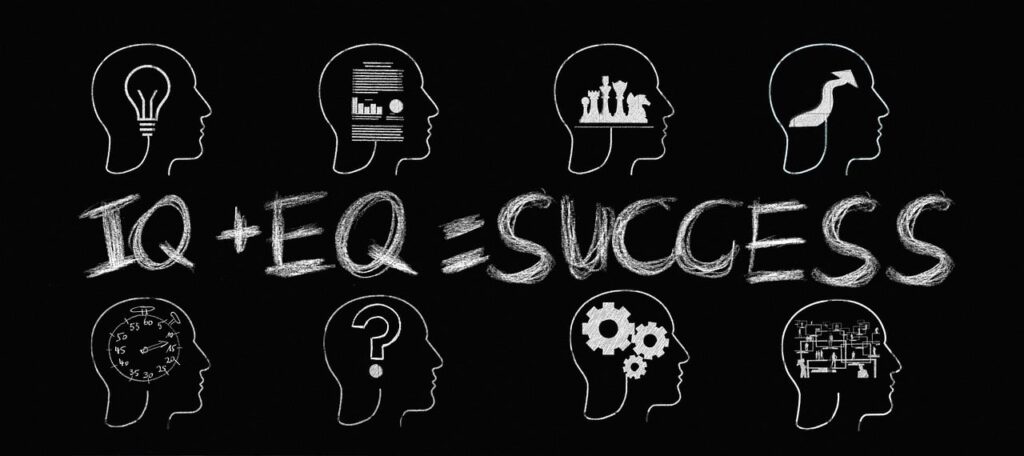What is meant by understanding the role of Technology in Human Psychology.
Understanding the role of Technology in human Psychology means In our rapidly evolving digital age, the intersection between technology and human psychology has become an area of both intrigue and concern. The omnipresence of digital devices and platforms in our lives is not just reshaping our social interactions and information consumption patterns but is also having profound effects on our mental processes and well-being.
As we delve deeper into understanding these impacts, it becomes clear that technology can be both a boon and a bane for our psychological health, influencing everything from our self-perception to our cognitive functions. This blog post aims to explore the multifaceted role of technology in human psychology, shedding light on how our minds adapt, change, and sometimes struggle in the face of relentless technological advancement.
The Psychological Effects of Social Media on Self-Perception
The landscape of social media presents a unique challenge to our understanding of self. As we navigate through endless streams of polished images and accomplishments shared by peers, it’s easy to fall into the trap of negative self-comparison. This digital comparison culture often paints a skewed reality that can significantly impact individuals’ self-esteem and mental health, particularly among adolescents and young adults who are at a formative stage in developing their identities.
The relentless pursuit of validation through likes and comments can lead to a cycle of dependency that distorts self-perception, making one’s worth seem contingent on online approval. However, it’s not all bleak. Social media also opens avenues for positive self-expression and identity exploration.
It allows for the discovery of communities and groups where individuals can find acceptance, understanding, and support. This aspect of social media can play a vital role in bolstering self-confidence and providing a sense of belonging. By curating their social feeds, individuals can create a more positive online environment that nurtures their mental well-being.
The duality of social media’s impact on self-perception underscores the importance of mindful engagement with these platforms. It invites a deeper reflection on how we choose to present ourselves online and the values we attach to digital validation. Recognizing the curated nature of social media content and limiting exposure to potentially harmful comparisons are steps towards fostering a healthier self-image in the digital age.
The Influence of Technology on Attention and Memory

Our daily digital environment is inundated with stimuli that compete for our attention. With every notification, email, and endless scroll, our capacity to focus is fragmented, leading to significant shifts in our cognitive landscape. This constant bombardment of information not only challenges our ability to concentrate on single tasks but also impacts our memory retention and recall abilities.
Studies have illustrated that the pervasive use of technology, particularly among heavy users, correlates with reduced attention spans and a diminished ability to engage in deep, meaningful focus over prolonged periods. This trend suggests that the architecture of our digital experiences could be at odds with the cognitive processes necessary for deep thought and memory consolidation.
However, it’s crucial to recognize the duality of technology’s impact on our cognitive functions. While certain aspects of technology may pose challenges to our attention and memory, others provide innovative tools aimed at enhancing these very faculties.
Various applications and platforms are designed specifically to aid in improving focus, organizing thoughts, and even training our brains in ways that can lead to better memory retention. For instance, productivity apps help users block out distractions and concentrate on the task at hand, while memory games and puzzles offer a fun and engaging way to strengthen cognitive skills.
This contrasting effect underscores the importance of mindful technology usage. By choosing how and when to engage with digital tools, individuals can harness technology’s potential to support cognitive development and mitigate its disruptive effects on attention and memory.
Technology’s Role in Shaping Emotional Intelligence

In the realm of emotional intelligence, technology occupies a nuanced position, influencing how we perceive, express, and manage emotions in the digital era. The medium through which we interact online often strips away the subtleties of human communication, such as body language and tone, which are crucial for understanding emotional contexts. This limitation can lead to challenges in empathizing with others, potentially resulting in misinterpretations and a decrease in the quality of digital communications.
Despite these challenges, technology also offers unique opportunities for emotional growth and connection. Platforms that enable story sharing and global interaction can cultivate empathy, understanding, and support among individuals from varied backgrounds. Such interactions, when approached with intentionality, can enrich our emotional intelligence by exposing us to a broader spectrum of human experiences and perspectives.
Engaging with technology in a manner that promotes emotional literacy requires a mindful approach to digital interactions. Encouraging authentic and open communication online, seeking out diverse narratives, and taking time to reflect on the emotional content of digital exchanges can enhance our ability to navigate emotions in both virtual and real-world contexts.
By actively choosing to engage with technology in ways that build rather than hinder our emotional connections, we can leverage the digital world as a tool for developing a deeper, more nuanced emotional intelligence.
Enhancing Cognitive Abilities Through Digital Platforms
In the digital age, the opportunities for cognitive enhancement through technology are vast and varied. Online platforms have transformed the landscape of education and skill development, making learning more accessible and interactive. Through applications dedicated to language acquisition, mathematics, and even coding, users can tailor their educational journeys to their personal interests and pace.
Additionally, the incorporation of gamification into learning platforms has revolutionized the approach to education, making the process of acquiring new knowledge both enjoyable and effective. Interactive tools and virtual reality environments offer immersive experiences that not only engage users but also stimulate cognitive functions in innovative ways.
For example, virtual simulations used in medical training allow for a hands-on approach to learning complex procedures without the real-world risks. Similarly, brain training apps promise to enhance memory, problem-solving skills, and cognitive flexibility through a series of targeted exercises.
These digital resources are not confined to formal education settings but extend to anyone with an internet connection, embodying the principle of lifelong learning. Whether it’s picking up a new hobby, mastering a professional skill, or simply indulging in intellectual curiosity, technology provides the platforms to support and enhance our cognitive capabilities. By embracing these tools, individuals can embark on a journey of continuous learning and mental expansion, unlocking potentials that were once deemed unattainable.
The Double-Edged Sword of Connectivity and Loneliness
In an era where the world is at our fingertips, the convenience of technology-driven connectivity paradoxically coexists with a heightened sense of loneliness. The digital sphere, with its instant messaging, social networks, and video calls, promises an illusion of closeness yet often falls short of fulfilling the human need for genuine connection and understanding. This discrepancy between digital interaction and authentic human connection can exacerbate feelings of isolation, as the quality of relationships may not match their quantity online.
The phenomenon is particularly striking in the context of social media. While platforms enable us to stay in touch with friends and family across the globe, the depth of these connections can sometimes be superficial. The curated showcases of life events do not always allow for the sharing of vulnerabilities or the forging of deep bonds. Moreover, the efficiency of digital communication sometimes lacks the warmth and empathy conveyed through face-to-face interactions, elements crucial to building and maintaining strong relationships.
Young adults and teens, who are especially active online, find themselves navigating a complex social landscape where the number of followers can misleadingly equate to social success, further distorting their perceptions of connection and belonging. The challenge, then, is to leverage technology in ways that enhance rather than diminish the quality of our social interactions.
Cultivating awareness of how we use technology to connect, making conscious efforts to engage in meaningful interactions, and balancing our online presence with offline relationships are vital steps towards bridging the gap between connectivity and true companionship in the digital age.
Navigating the Digital Landscape: Strategies for Mental Health

In addressing the challenges technology poses to our mental health, it’s essential to establish healthy habits and boundaries. Crafting a balanced relationship with our devices is key. This might include creating a tech-free zone in your home or setting aside specific times during the day when you disconnect entirely, fostering a space for relaxation and reflection. These practices can help counteract the constant stream of information and demands for our attention that technology presents, allowing our minds to recharge.
Mindful engagement with digital content is another crucial strategy. This involves being selective about what we consume and being aware of how it affects our mood and mental state. For instance, curating our social media feeds to include content that inspires and uplifts us, rather than content that leads to negative comparisons or feelings, can make a significant difference in our overall well-being.
Moreover, technology itself can be a valuable ally in promoting mental health. Numerous apps and online platforms offer resources for stress management, mindfulness, and mental resilience. Engaging with these tools can provide practical support and guidance, helping us navigate the complexities of our digital lives more effectively.
By implementing these strategies, we can take proactive steps towards safeguarding our mental health in the digital age. The goal is not to eliminate technology from our lives but to interact with it in ways that enrich our well-being, striking a harmonious balance that supports our psychological health.

